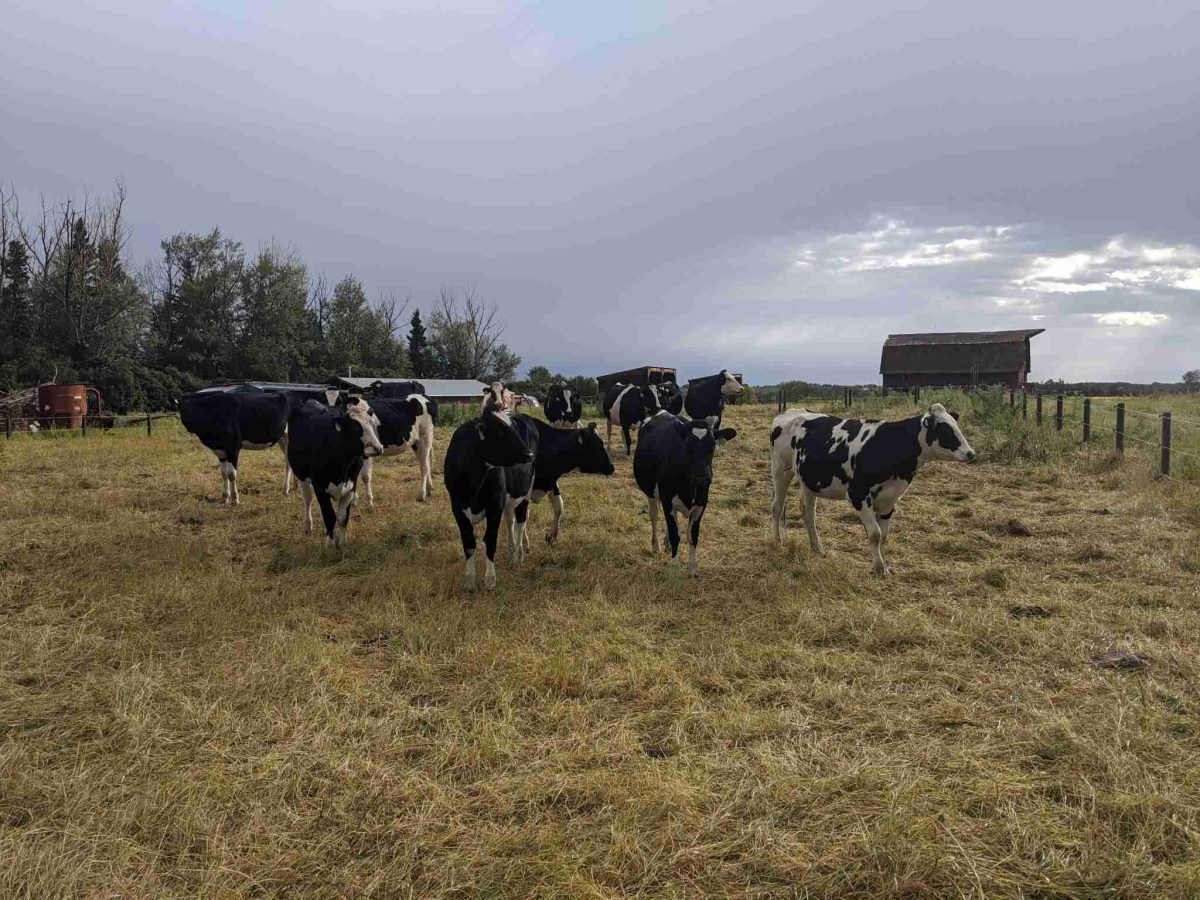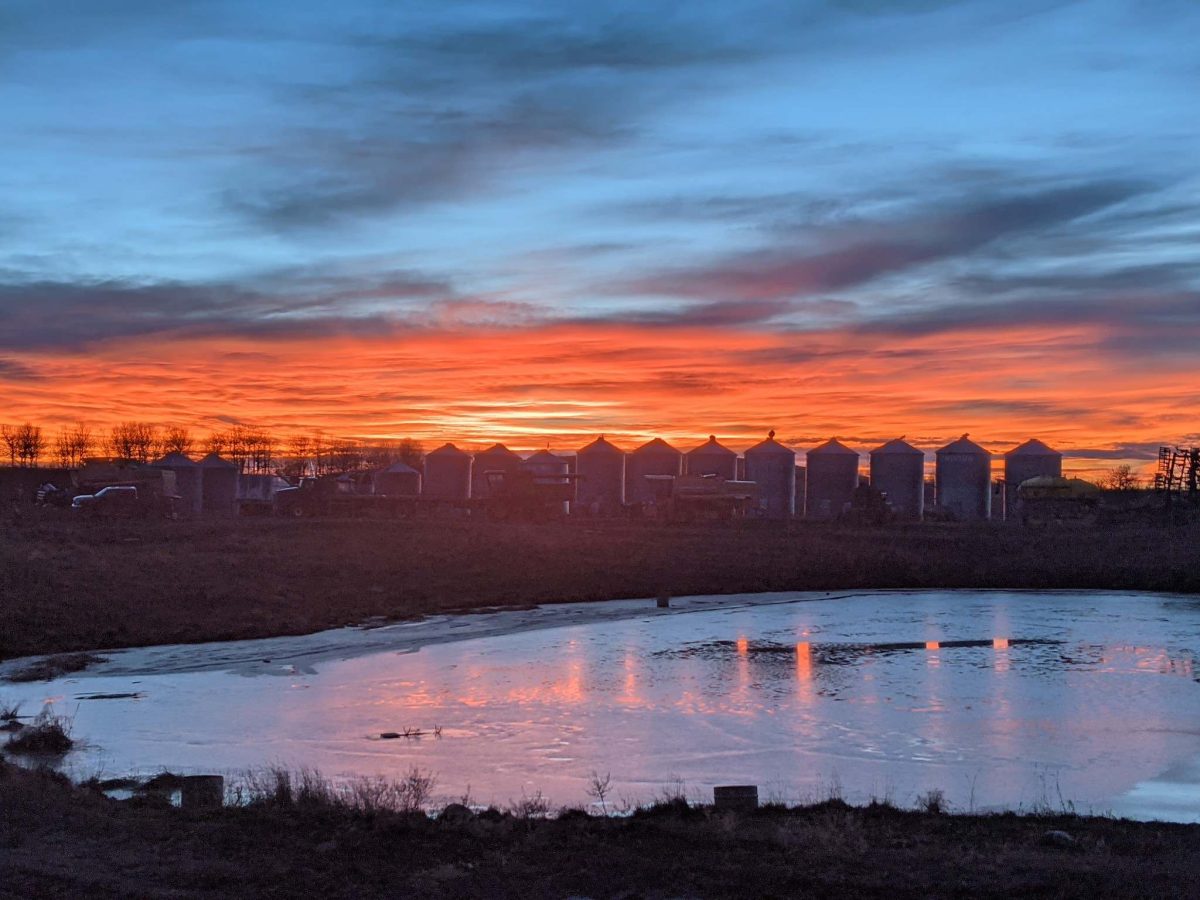How inflation and weather changes are taking a toll on local family farms
By Nick Petlock on March 20, 2023
With the prices of goods rising and a changing climate, family farmers are finding it harder to keep their businesses going. Brandon Douglas has worked and lived on his family’s farm, Douglas Farms, his whole life. The farm, located outside of Delburne, Alberta, is a dairy and beef farm. They family farms on 1600 acres of cropland. Started by his Grandpa, Douglas Farms has been around for over 70 years and is still going strong. Some family farms, however, haven’t been as lucky.
Q: How have price increases affected your business and how you run it?
A: The increases in inflation have affected the agriculture industry particularly hard, over the past year. Crop input prices, like fertilizer and feed, have skyrocketed, which obviously increases the cost to feed your animals. Particularly, dairy cattle feed is very important. Whether it be putting crops in the ground or fuel in the tractors, the cost of production has increased.
Q: Have you had to spend more on supplies than you have in the past?
A: Everything like the soap that we use to clean all the pipes, has increased. Pretty much anything we use, even on a small scale basis like paper towel, we’ve seen costs increase. As much as our suppliers do their best to combat it, they still have to cover things on their end.
Q: Do you receive more for your dairy products, since prices of goods have gone up?
A: In Canada, the dairy industry runs on a quota program or quantity management, by the government. What we get paid does fluctuate a little bit, based on markets. However, it doesn’t reflect the fluctuations we see in input products, like the price of feed.
Q: How financially viable is farming?
A: The financial viability is still there because it is such a long-term investment. Even with prices increasing, a lot of costs have already been sunk into the business over 20, 30, or 40 years. It’s much harder to start farming now, because of the rise of costs in everything, from land to equipment. I would say getting started is harder, but if you are already in it, remaining financially viable is still possible.

Q: Are you worried for the future of farming?
A: I fear more for the future of family farms, as opposed to the factory-style farm, where it’s larger scale. They have so much money available to them, that it’s kind of pushing out smaller family farms, like my own.
Q: How much milk does your farm sell?
A: Depending on the time of year and how many cows are milking, about 2,000-2,500 litres of milk, every second day. We’re very small, compared to other farms, that sell tens-of-thousands of litres, if not more so. Once you reach your quota, you can keep the rest yourself. Whether it be for your own family or to feed the baby calves, you can use it on the farm.
Q: Has climate change affected how you farm?
A: This is obviously a big-standing debate. Whether or not it’s the difference between weather or climate change. For the eternity of farming, there are years when there’s a drought, or where rain is too plentiful. A lot of crops in low-lying areas can drown out. We can’t treat the land like garbage, because then next year, it’s not gonna grow anything. I think farmers have always had a natural environmentalist ingrained into their profession and their personalities. However, now it’s much more prevalent with outside pressure too. The effect of climate change is now more about new regulations the government is pushing farmers into. They are trying to push us more in the ecological direction. The type of chemicals you use for pesticides or fertilizers, I would say, is the biggest impact we’ve seen recently.

Q: Do you plan to take over your family’s farm in the future?
A: Right now I would say no. I was full-time for a number of years but changed to pursue a different profession. For the dairy side, my older sister has already bought into that and kind of taken it over. She, my dad and my grandpa are still very involved in the operation and decision-making. I would love to go back and live around the farm and kind of be around it in some capacity. In terms of full ownership and operations though, I don’t think that is in my future.
For now, Brandon continues to work part-time on his family’s farm, when he’s not in school. The farm continues to be run by Brandon’s grandpa, dad and sister, continuing to keep the family legacy alive.
